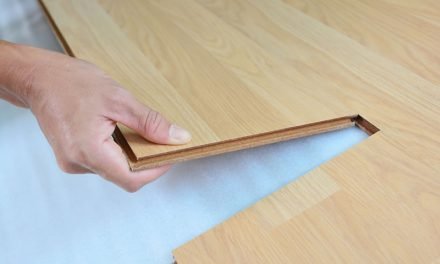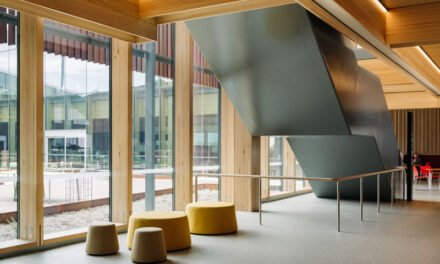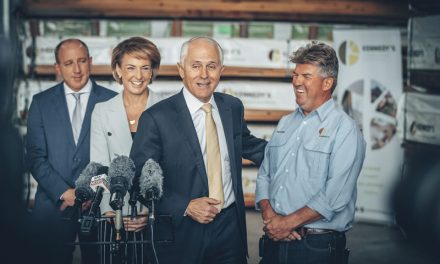From starting on a £400 loan to one of the leading timber companies in the country, Tilling’s journey has had the constant goal of delivering value for the industry.
Tilling’s recent birthday celebrations were a family affair in the very real sense of the phrase. Whether bound together by blood or by years of working for a common goal, the Tilling family reminisced over the journey that has taken the company from its two-person start to national prominence in the timber sector.
Here, based on speeches given at the celebration by managing director Glenn Tilling and CEO Adrian Robertson, is a brief recap of that journey.
THE START OF TILLING
It began, as many good stories do, with two young, vibrant and very ambitious newlyweds. He was a very eager young sales rep named Norm from a rickety old timber yard called PGA Timber. With a solid track record of selling timber to builders all over eastern Melbourne, he hoped for a good response when he asked for a pay rise as he and his beautiful bride, Judy, were expecting their first child. Instead, he met a flat no.
Glenn imagines that Norm said to that: “I know! Even though I have a very pregnant wife and a half-finished house to be completed, I’ll quit my secure weekly paycheque and go out on my own! How hard could it be if these clowns can do it?”
A family friend was able to lend them £400 and Norm and Judy began sourcing OB hardwood scantlings from Alex Demby sawmills in Toolangi and Brimbonga Sawmills in Warburton, machining the timber at night at a local joinery shop and selling it from under said half-finished house in Eltham to local builders. And just like that N&J Tilling was born.
From there it was mostly growth: around 1964 they took over that local joinery shop and bought a truck – “An old Bedford without a working park brake and gear stick that would only stay in reverse if firmly held in place, which was my mother’s job with my then baby sister, Peta, on her other knee,” says Glenn.
With the purchase of an old Wadkin Moulder and a 48-inch Robinson band saw, Norm and Judy started running V-joint and channel profiles; soon Tilling was synonymous with high-quality, on-trend profiles of western red cedar and other exotic timber species from around the world.
The natural next step was into the sphere Tilling remain famous for: understanding the direct import market. They hoped to bring in cedar and Oregon from the West Coast of the US and Canada themselves and thereby lower their costs as Australian wholesalers were eating their margins. At that time that market was a closed shop, with the ‘Vancouver Club’ controlling access.
Undeterred, Norm and Judy boarded a Qantas 707 at the newly opened Tullamarine Jetport and began the multi-leg journey to Vancouver. Once there, they knocked on a lot of doors and received a lot of versions of the same lecture about the trading arrangements being long-established and not the sort of thing anyone wanted to upset. They were told to go home and stop bucking the establishment.
Instead, they kept knocking until a few of the smaller cedar and Douglas fir mills agreed to supply them, which began Tilling’s decades-long position of strong supply within the market.
Around 1970, Norm and Judy were approached by some progressive Eltham architects about making cedar panelling and mouldings. Their clients were inspired by Modernist American architects such as Frank Lloyd Wright and there was a growing demand for western red cedar wall panelling as shown in American Home Beautiful type magazines. Things were going well.
But, as with every good story, there were bad days.
The old sawdust hopper had been struggling to keep up for a while and one day it simply went boom, with an explosion of cedar sawdust all over Tilling’s neighbours along the road.
Glenn takes up the story again: “One of those neighbours was our soon-to-be-ex friends at Kookaburra Cricket – they had just put a fresh batch of newly lacquered balls out in the sun to dry ready for the upcoming summer of cricket. Norm told them, ‘Don’t worry, you can always sell them as red ornamental lamingtons!’ He still to this day doesn’t understand why they didn’t see the funny side of it.
“A few weeks later, Norm was telling the Ford car dealer next door, ‘Sorry about your flattened cars, mate, but I did tell you to move them away from the fence when it rains. Hey, do you reckon the boys could bring the fork around so we can pick up our 40-foot flitches? I’m sure your brand-new Roller is under there somewhere…’ Needless to say, N&J Tilling had outgrown the newly gentrified, artsy, suburban Eltham.”
The move from Eltham spring-boarded another growth period for Tilling: the company moved to its new (and still current) head office site in Kilsyth in 1978 and greatly expanded its offering of WRC Architectural products and cut to size Oregon.
It was a vibrant time, with Melbourne undergoing a building boom in the late 1970s and early ’80s and Tilling being one of the few companies with guaranteed supply through the mill strikes of the late ’70s. “These crippled the supply volumes of the long-established exporters and importers such as MacMillan Bloedel, Seaboard and Gunnersen’s,” says Glenn. “We had desperate, wood-starved merchants saying, ‘Norm, we don’t care what the price is and so what if the wood is crap? Just put it on a truck!’ Which sounds familiar from more recent years.”
The business changed its name to Tilling Timber and in the early ’80s opened wholesale yards in Wetherill Park in Sydney and Springwood, Brisbane. Still very much a family business, with Norm managing manufacturing and operations, and Judy sales and marketing, it was now a bigger family with daughters Janelle and Peta and son Glenn.
The focus remained on sawn wood in those days and Tilling took a leadership position around imports, hosting a four-week West Coast study tour with around 30 customers visiting Oregon, Washington State and Vancouver sawmills in 1984. As Glenn says, “They drank the entire city of Portland dry of red wine!”
A SHIFT IN FOCUS
In 1986, Tilling opened a shipping and logistics support office in Portland then, in 1988, a small agreement heralded a big change. Tillbeam Glulam was the company’s first EWP offer, and the agreement to market it in Australia was entered into as part of a package: the real goal was the attached exclusive local rights for all Bohemia Douglas fir volume.
For a few years, EWP remained a small part of the offer, but that was soon to change, as was the way the company operated: Judy focused on the import operations including due diligence while Norm concentrated on sales and marketing.
In 1990, Tilling opened its Newcastle/Carrington Wharf bulk receiving yard and in 1993, Willamette Industries bought out the Bohemia Lumber company, inheriting the existing supply agreement to supply Tilling with Douglas fir and glulam. The following year, Tilling became the exclusive distributor of Willamette LVL and I-joist and the year after that, the company launched the SmartFrame brand.
1995 was also the year that national engineering manager Craig Kay joined Tilling Timber, along with a small team of detailers, offering floor system estimating with the then newly created SmartFrame design software. “Fast-forward nearly 30 years and we now have 33 detailers and three engineers across Vietnam, Brisbane and Melbourne, with over 26,000 design requests resulting in some. 14,000 unique designs per year,” says Glenn. “It’s the largest design service of its type for the Australian market.”
By 1999, the Portland shipping office was no longer needed as the market had shifted so strongly away from precut Oregon towards EWP. The year after it was closed, Tilling was appointed exclusive distributor of FinnForest LVL for Australia, where it sold under the SmartFrame brand. A year later in 2001 Tilling became the east coast distributor of Wesbeam LVL, which was also made under the SmartFrame brand.
Not every New Year began with a high point. In January 2002, American timber giant Weyerhaeuser signed a merger deal with Willamette Industries and Norm and Judy were unable to secure ongoing distribution. Undeterred, the Tillings went to Seattle to meet with Pacific Wood Tech who went on to become the company’s major EWP supplier for the next two decades. That same year, Tilling signed an exclusive distribution agreement with Nelson Pine LVL.
If 2002 began with a problem, 2003 ended with a catastrophe. On New Year’s Eve a huge fire raged through the Kilsyth facility, destroying the office and moulding mill and causing some $5 million in damage. More than 130 firefighters and 43 appliances were needed to put it out and the fire cut local electricity and robbed the suburbs of Kilsyth and Montrose of drinking water for the following couple of days.
Yet true to form, Norm, Judy and Tilling Timber bounced back. On 1 December 2005, then Premier of Victoria Steve Bracks opened the new and improved offices and the adjoining (and fully sprinklered) warehouse at Kilsyth.
“The years after the fire heralded new accomplishments,” Glenn says. “We launched a series of new products, moved into Perth, celebrated our 50-year anniversary and opened in Adelaide, where we quickly outgrew our original site and relocated to an old Holden car seat factory.”
Glenn says they were a series of very good years, adding that in 2017, Richmond even managed to win the AFL Grand Final!
CHANGES: PLANNED AND OTHERWISE
Then in October 2019, Norm had a life-threatening stroke. He survived, but immediately retired from his active roles in the business. Judy stepped back with him, but has continued to provide the wider industry with the benefits of her expertise on issues around importation, supply and market changes.
By then, the second generation of Tilling Timber was well established. Glenn had been active in the business as a director for more than 20 years and a strong management team on both the business and engineering sides had been keeping the wheels turning smoothly for Norm and Judy, so the transition was comparatively painless.
The times, however, were anything but. The Coronavirus Pandemic and the then Federal Government’s HomeBuilder stimulus package combined for a once-in-a-lifetime timber shortage.
No sooner was shipping starting to get back to something approaching normal than Russia invaded Ukraine in February 2022. FSC and PEFC declared all timber from Russia and Belarus to be Conflict Timber. With remarkable speed, Tilling moved the entirety of what had been Australia’s largest LVL supply chain out of Russia and into Asia, and worked carefully along that chain to make sure it was free from falsely labelled conflict timber.
Although unexpected, the shift into Asia has come with benefits. In September last year, Tilling opened a representative office in Ho Chi Minh City, Vietnam, where 30 highly skilled and dedicated staff provide back office support services including SmartFrame design and administration support. Additionally, a new Vietnamese outsourcing business, MyTeam, now provides remote staff for the building supply, construction and associated businesses. This allows for Tilling to be supported in a challenging job market, but also delivers the same opportunities to its partners.
One planned-for change was the commissioning of a custom-built, state-of-the-art I-joist plant at Kilsyth with full production earlier this year. Once again, the company is taking a leadership role in ensuring supply.
From two people, Tilling now numbers just over 200 staff across Australia and Vietnam. Where once there was a small range, now it is a leading Australian supplier of EWP and has led the way in changing the industry, whether that be from comprehensive IT services that have now grown from engineering designs to adding value across each customer’s whole business, or in championing new building methodologies such as cassettes.
“The credit is with Norm and Judy for building a company based on hard work, strong investments, pioneering innovation and strong family values,” says Adrian Robertson.
“And while we celebrate the past, we’ve been investing to strengthen ourselves and our customers for the future. We’ve commissioned the largest timber treatment facility in Australia up in Queensland, which will allow us to bring innovations in treatment that have never been seen before. The SmartJoist manufacturing currently being commissioned in Victoria will bring manufacturing back into Australia and shorten the length of the supply chain, plus our large IT investments will expand what we can offer our customers in terms of live opportunities.
“The past is something to be proud of and the future is exciting!”
For more, visit www.tilling.com
Image: (Clockwise from top left) Norm and Judy through the years; the old red Bedford truck; the new I-joist plant at Kilsyth; Tilling at its old Eltham site.












